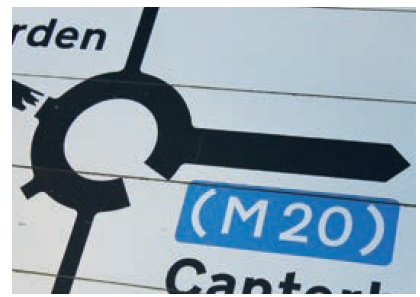A new interim strategy to keep traffic moving on the M20 during Operation Stack is to be introduced by the Department of Transport in early 2019.
The new strategy, called Operation Brock, will use a contraflow system to keep the road open when problems arise and is expected to include toilet facilities and water supplies for drivers waiting on the motorway. According to Roads Minister Jesse Norman, the interim plan will start early next year and continue until a permanent solution is found.
 Operation Stack, which turns sections of the M20 into a lorry park for thousands of trucks, was introduced in February 1988, when a strike by the National Union of Seamen at Folkestone Docks, closed what was then an important ferry terminal. The strike only lasted three days but caused chaos on the approach to both Folkstone and Dover ports. Operation Stack has been used many times since then whenever there is congestion at the Channel ports. The uncertainty of post Brexit regulations and the possible delays caused by additional customs checks has no doubt prompted the introduction the new ‘temporary’ arrangements.
Operation Stack, which turns sections of the M20 into a lorry park for thousands of trucks, was introduced in February 1988, when a strike by the National Union of Seamen at Folkestone Docks, closed what was then an important ferry terminal. The strike only lasted three days but caused chaos on the approach to both Folkstone and Dover ports. Operation Stack has been used many times since then whenever there is congestion at the Channel ports. The uncertainty of post Brexit regulations and the possible delays caused by additional customs checks has no doubt prompted the introduction the new ‘temporary’ arrangements.
Commenting on the move FTA’s Head of UK Policy Christopher Snelling said, “The proposed temporary solution for Operation Stack on the M20 is a good compromise for operators concerned about managing queues safely at the Channel ports in the event of cross-Channel disruption, until a permanent lorry parking area can be built. It is vital both for the logistics industry, and for Kent as a whole, that traffic can continue to flow freely throughout the county, and the proposed solution could provide that for now.”
In an interview with the BBC Jesse Norman said, "We've seen the severe disruption that people in Kent had to face in 2015 when there were hold ups across the Channel. This interim plan will help to minimise that disruption and mean people will be able to go about their everyday lives, seeing friends and family or going to work, as well as businesses being able to get to their customers."
In 2015, queues of 4,600 lorries stretched back 30 miles at an estimated daily cost to the UK economy of £250m.